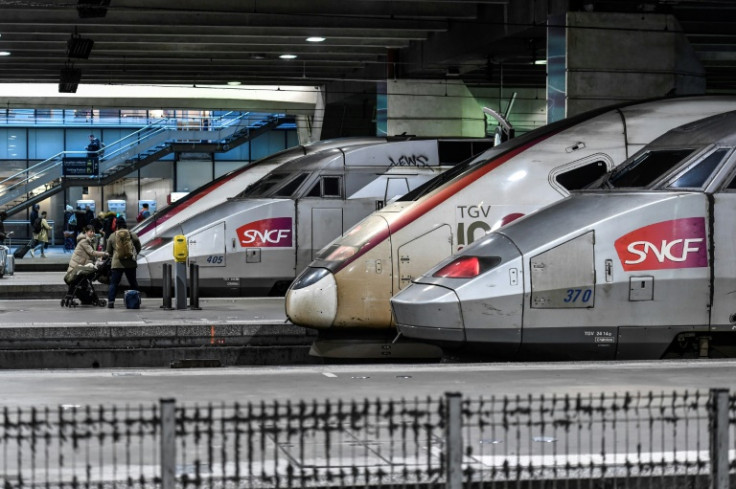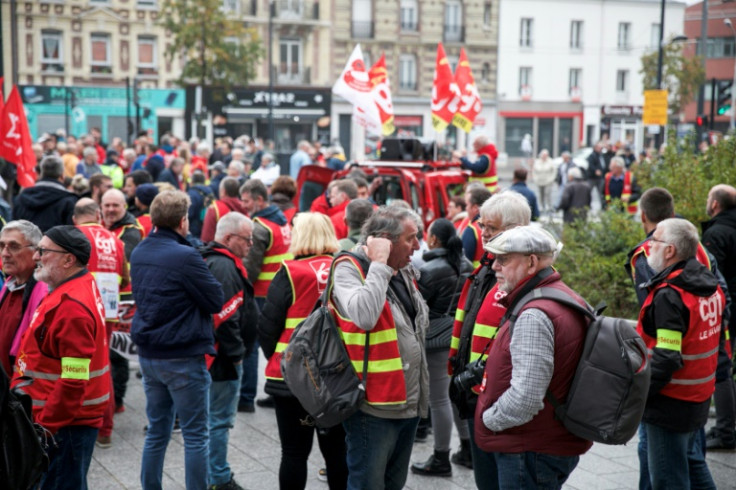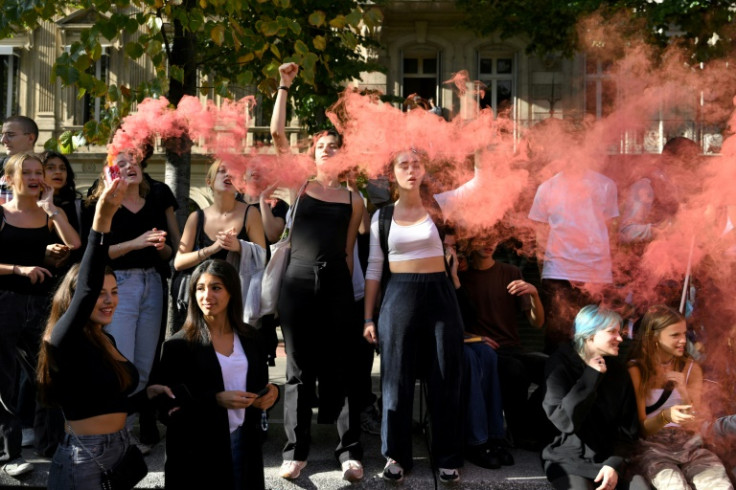France faces delays as unions call transport strike
France faced disruptions on Tuesday after unions called a nationwide transport strike.

France faced disruptions on Tuesday after unions called a nationwide transport strike, as they remain in deadlock with the government over walkouts at oil depots that have sparked fuel shortages.
The effects were already visible at Paris hub Gare de Lyon early Tuesday, with packed suburban trains disgorging floods of passengers onto the platforms every 15 or even 20 minutes.
Commuter Leonore Lopez said her trip into Paris from a small town outside the capital had taken one hour more than usual.
"It was a bit of a pain," she said.
The broader strike comes after workers at several oil refineries and depots operated by energy giant TotalEnergies voted to extend walkouts.
Their industrial action has seriously disrupted fuel distribution across the country but particularly in northern and central France and the Paris region.
Motorists have scrambled to fill tanks as the fuel strike, which has lasted for nearly three weeks, cripples supplies at around 30 percent of France's service stations and has had a knock-on effect across all sectors of the economy.
President Emmanuel Macron's government used requisitioning powers to force some strikers back to open fuel depots, a move that infuriated unions but has so far been upheld in the courts.
Finance Minister Bruno Le Maire earlier said it was necessary to use requisitioning powers to reopen the refineries and depots.
"The time for negotiation is over," Le Maire told the BFMTV broadcaster.
"There was an agreement," he added, referring to the deal concluded last week between TotalEnergies and two majority unions, but which the hard-left CGT union rejects.
The CGT's representative at TotalEnergies, Eric Sellini, told AFP that strikers would gather on Tuesday evening to decide their next move.
CGT boss Philippe Martinez suggested Monday that the government "get around a table" with the unions to discuss an increase in France's minimum wage.
The leftist CGT and FO unions called a nationwide strike Tuesday for higher salaries, and against government requisitions of oil installations, threatening to cripple public transport in particular.
The action is the unions' biggest challenge to Macron since he won a new presidential term in May.
The Liberation newspaper on its front page published a caricature of Macron swept off his feet and clinging on to the edge of a giant megaphone blasting the message of angry protesters.
Unions in other industries and the public sector have also announced action to protest against the twin impact of soaring energy prices and overall inflation on the cost of living.
Rail operator SNCF will see "severe disruptions" with half of train services cancelled, Transport Minister Clement Beaune said.
At the train station in the southwestern city of Toulouse, Frederic Mercier-Handisyde had turned up two hours early to travel to Paris.
"I thought there would likely be disruptions, so I planned ahead," said the 58-year-old engineer, though adding he supported the strikers.
A poll by the Elabe group found 39 percent of French people supported Tuesday's action, while 49 percent disapproved of it.
CGT boss Martinez told RTL radio that it would be "the workers who decide" whether the strike at SCNF continues into the busy late October school holiday period.
"Rail workers are determined to obtain real pay rises," Laurent Brun, head of the CGT's rail workers union, wrote on Twitter.
Suburban services in the Paris region and bus services would also be impacted, operator RATP said.
But the inner-Paris metro system appeared to be largely unaffected.
Beyond transport workers, unions hope to bring out staff in sectors such as the food industry and healthcare.
The education ministry said less than six percent of its workers had walked out, though that rate reached 23 percent for vocational schools.
Their action will kick off what is likely to be a tense autumn and winter as Macron also seeks to implement his flagship domestic policy of raising the French retirement age.
The economic squeeze partly caused by Russia's invasion of Ukraine, along with the failure of Macron's party to secure an overall majority in June legislative polls, only adds to the magnitude of the task.


© Copyright AFP 2025. All rights reserved.




















